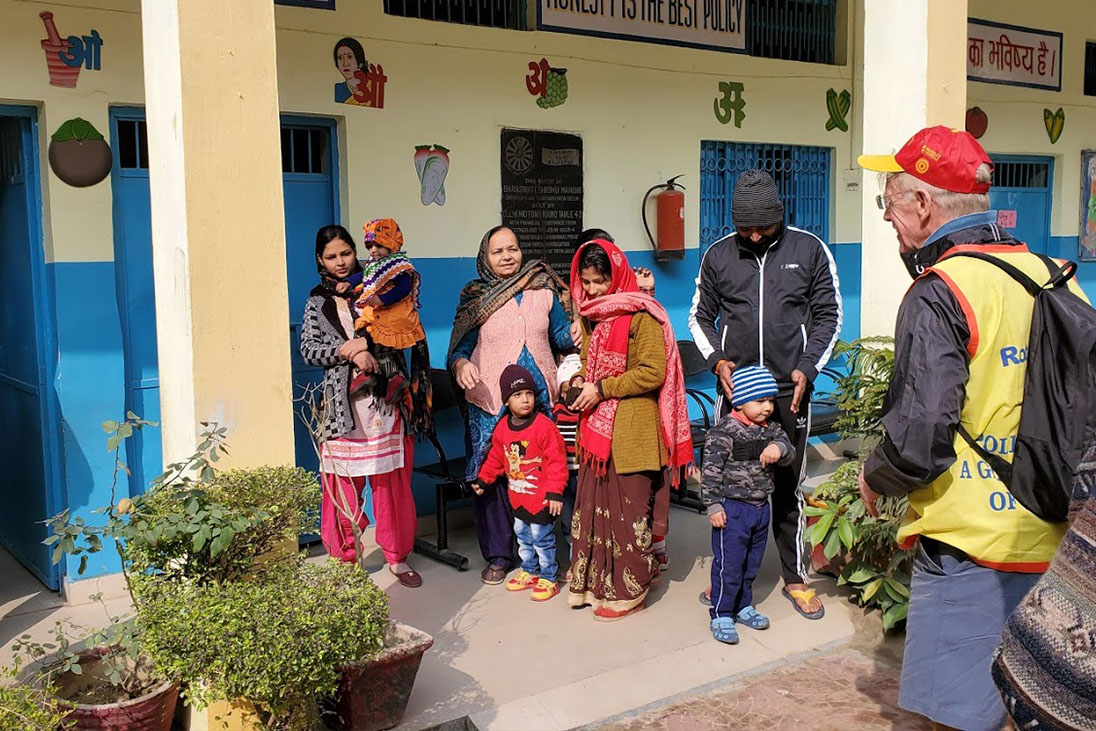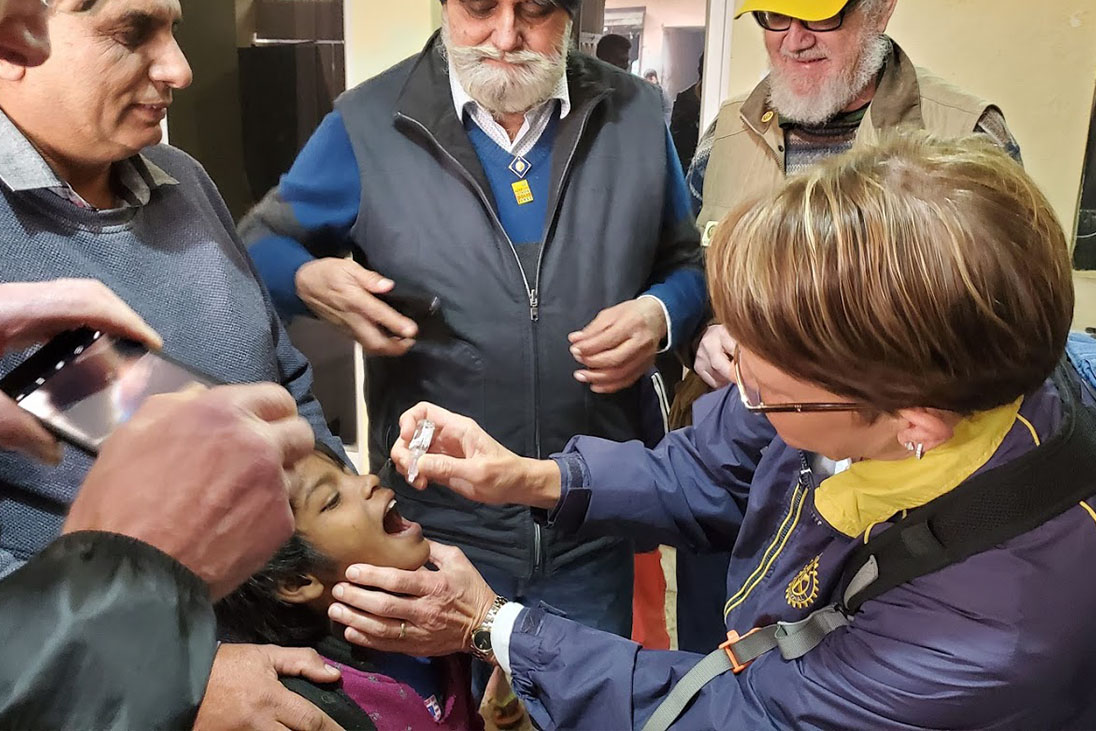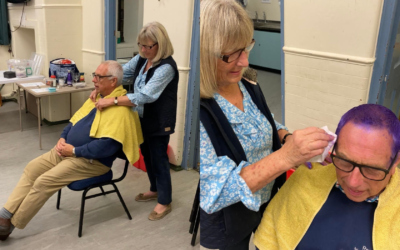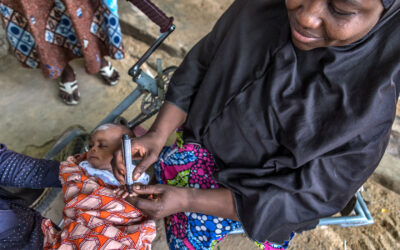The fight against polio was ramped up in India this weekend when two teams of Rotarians from Great Britain and Ireland took part in the National Immunisation Day.
District Governor Manoj Joshi has taken a party of Rotarians to Amritsar in northern India, close to the border with Pakistan, while a second group is based in Delhi, which includes Rotary magazine editor, Dave King.
This year, Indian President, Pranab Mukherjee launched what is known as Polio Ravivar by administering polio drops to children at the Presidential Palace, Rashtrapati Bhavan in Delhi.
I know how important it is that India is rid of polio and we do not want polio to come back. That would be terrible.”
Meanwhile, the Delhi group of Britons headed to the market town of Najafgargh, 15 miles outside of Delhi, to join medical teams at three health centres.
Throughout the day, parents brought their children to the health centres to have polio drops administered, and their fingers daubed with a purple marker to show they had received the vaccine.
All this week, Rotarians will be joining the health workers going door to door in neighbourhoods to rustle up those youngsters who failed to make it to the health centre.


Throughout the day, parents brought their children to the health centres to have polio drops administered.
And that pattern will be repeated across towns, cities, villages and small communes the length and breadth of India, which has officially remained polio-free since 2014. The last case of polio in India was found in a young girl in Bengal in 2011.
The vaccinations in Najafgarh took place in India’s first primary health care centre, which was opened in the 1950s.
Dr Dinesh Chawla, the assembly co-ordinator for the area, has been involved with the polio project for 22 years. He said that in this region they were catering for a population of half a million, some of whom were spread out across 40 rural villages.
“We try to spread the message about the National Immunisation Day through television advertising, FM radio, in newspapers and banners, and we also have vans going through towns and villages with a loudspeaker to explain the day,” he said. “We give out many leaflets.”
The target in Najafgarh is 60,000 youngsters aged under-five to receive the vaccine. “We anticipate vaccinating 15,000 at the health centres, but the rest will get the vaccine from the house-to-house visits over the next five days,” he added.
“We have 161 teams all working together in the communities. Some are health workers, others are volunteers.


The target in Najafgarh is 60,000 youngsters aged under-five to receive the vaccine.
“Everyone takes this National Immunisation Day very seriously. Although India has been polio-free for almost six years, we do not want it to come back.
“In the past, India used to export polio to other countries, now we do not want it to return. We are under pressure to keep the community safe.”
“I am very proud of our team and the work that they do, and we are very grateful to the help from Rotary International and the Rotarians who help us with our work at the polio booths.”
Dr Chawla admitted that the prospect of polio returning was an incentive for a lot of parents to ensure their children were vaccinated.
He said he was confident they would reach everyone, although admitted that in some communities there was a reluctance.
Through dialogue with community leaders, and even holding community meetings ahead of the National Immunisation Day, they were often able to break the deadlock.
He added: “I can’t say we will get 100% coverage, but we will do our best.”
I am scared of polio, many people are, that is why this is important.”
The doctor added that India now has a sophisticated surveillance system for the early detection of the virus should it reappear.
At one clinic held at the Ekta Model School in Rosham Gardens, 25-year-old mother, Lajwanti, brought her 18-month-old baby daughter, Hitikiha, to have the polio drops.
“It was important that I came,” she said through a translator. “I have a friend, who is 35, who has polio, so we know all about the dangers.
“We read about the immunisations in a newspaper, so I decided to bring my daughter along. I know how important it is that India is rid of polio and we do not want polio to come back. That would be terrible.
“I am scared of polio, many people are, that is why this is important.”
You can read more about Dave King’s visit to India for the National Immunisation Day in February’s issue of Rotary magazine










